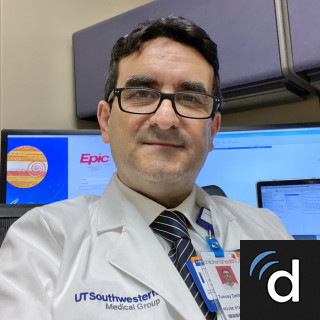Dr. Tuncay Delibasi
Contents
Career
He was the founder of the Cell Therapy & Regenerative Medicine & Genomic Research and Application Center (ADACELL) which was located in Diskapi Teaching and Research Hospital in Ankara.[1] The center was one of the first centers that perform human islet cell isolation regularly for research purposes in Turkey.[2]
He moved to Miami as a researcher in the Miami University, Center of Pharmacogenomics and also as a visiting researcher at the Diabetes Research Center, Islet Cell Transplantation Unit. After returning to Turkey, he became the founder and director of clinical services of the department of endocrinology & metabolic disorders at Diskapi Teaching and Research Hospital from 2008 to 2015. Additionally, he has also held the position of professor at Hacettepe University, School of Medicine, and Department of Internal Medicine since 2011.
Dr. Delibasi was the director deputy and board member for the Advanced Medical Technology Education, Application and Research Center of Hacettepe University between 2014-2015. The unit serves as the main laboratory for the university and provides a platform that allows multidisciplinary research.[3] He currently serves as chairman of the human ethics committee as well as the chairman of the ethics of experiments with animals panel at Diskapi Teaching and Research Hospital.
He gained expertise in leptin replacement therapy.[4]
Positions
He was the president of the Ankara Diabetes Association, which regulates public education activities on diabetes since 1969. He also served as the president of the Pancreas Islet Cell Research Society - the only organization that is supportive of islet cell research conducted in Turkey.[5] He is also a board member of the Stem Cells and Cellular Therapy Association which is coordinating the 8th Islet Society Meeting since 2016. Prof. Tuncay currently serves on the board of trustees for the Stem Cell Foundation, which is among the most active stem cell organizations in Turkey.
Education
Dr. Delibasi graduated from Hacettepe University Medical School, which is among the most prestigious medical schools in Turkey in 1993. He completed a residency in internal medicine at Ankara Numune Teaching and Research Hospital in 1998 and completed an endocrinology residency in 2003 at Ankara University, School of Medicine.[6] Dr. Tuncay was a postdoctoral fellow in the University of California (UCLA) Department of pharmacogenomics as well as clinical pharmacology from 2004 to 2006.
He got his clinical genetics education at UT Southwestern
Achievements
Dr. Delibasi was involved in more than 20 clinical trials across the world as the principal investigator and is a chairman of the steering committee and national coordinator in a couple of them. He was a part of the stem cell and cellular therapies ethics committee of the Ministry of Health of Turkey between 2011 and 2015.[7] The ethics committee is the only one that reviews all clinical human stem cell therapies in Turkey. Dr. Tuncay has published hundreds of journal papers and book chapters and scientific papers including more than 100 teaching presentations.
Research at Harvard
He was visiting professor at Harvard Medical School at the Division of Endocrinology in 2016. In the meantime, he worked at Boston Childrens Hospital in Boston, MA. He involved in a research about the role of BRD7 in embryo development and glucose metabolism. [8]
He also conducted a collaborative project about diabetes and obesity. [9]
Future Plan
Dr. Tuncay Delibasi wants to continue his scientific research and academic career in the US and started his third specialty education in Clinical Genetics which has made him more confident in approaching any internal medicine and endocrinology patients, especially those with genetic causes for their complications. Currently, Prof. Tuncay is observing a Turkish family with homozygous Leptin deficiency. This is one of the rarest conditions across the globe and is aided by NIH to research the biology of leptin and the effects of replacement therapy on these patients.
Leptin Studies
Leptin replacement rescues the phenotype of morbid obesity and hypogonadism in leptin-deficient adults. In the article below, his objective was to evaluate the effects of leptin on insulin resistance: Changes in insulin sensitivity during leptin replacement therapy in leptin-deficient patients
Leptin changes brain structure, neuron excitability and synaptic plasticity. It also regulates the development and function of feeding circuits. However, the effects of leptin on neurocognitive development are unknown. He aimed to evaluate the effect of leptin on neurocognitive development: Leptin Replacement Improves Cognitive Development
Some Publications
Ovarian Hilus-Cell Hyperplasia and High Serum Testosterone in a Patient With Postmenopausal Virilization | Full Article
References
- ↑ About - Tuncay Delibasi
- ↑ Stem Cell Therapy and Transplant
- ↑ Dr. Tuncay Delibasi, MD – Dallas, TX | Endocrinology
- ↑ Leptin Replacement Therapy
- ↑ Dr. Tuncay Delibasi, MD - Magnolia, TX
- ↑ Tuncay DELIBASI | Research Director
- ↑ PROF. TUNCAY DELIBASI MD, NPI 1265066252
- ↑ *The role of BRD7 in embryo development and glucose metabolism
- ↑ *Leptin replacement alters brain response to food cues in genetically leptin-deficient adults
External Links
- Official Website
- Scientific Articles / Other Articles
- Official Facebook
- Official YouTube
- Official LinkedIn
- Official Twitter
- TuncayDelibasi.quest
MD Profiles
Caredash Ratemds NPI Record Tusem Book
